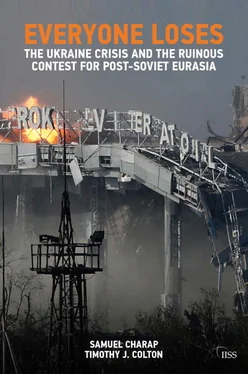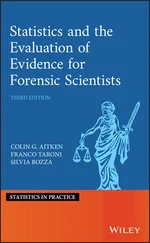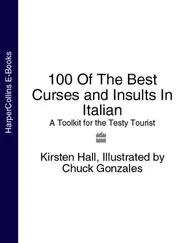Any goodwill emanating from the Founding Act was dispelled by a bitter controversy over the 1999 NATO air war against Slobodan Milosevic’s Yugoslav government, which had forcibly repressed a revolt by the Kosovar Albanian minority. It was the first major intervention in the history of the Alliance and the first to implement revisions of NATO’s strategic concept that allowed for military actions other than territorial defence. Incensed over the bombing campaign, Moscow broke off liaison with NATO and made the risky decision to send airborne troops into Pristina, Kosovo, ahead of the allied forces. Although cooler heads eventually prevailed and Russia contributed to the NATO-led peacekeeping mission in Kosovo, official suspicion hit new heights and Russian popular opinion was agitated. The episode underscored the growing gap between Russia and NATO over the Alliance’s post-Cold War modus operandi, particularly its enlargement and ‘out-of-area’ actions like Kosovo. Talk of Russia’s potential membership had almost ceased.
A parallel geo-economic dynamic took shape in the form of the European Union’s growth ambitions and the beginning of its enlargement process to take in the East Central European countries in the mid-1990s. EU enlargement followed its own prefab logic: the main qualification for membership was wholesale adoption of the acquis communautaire , the EU’s manual of laws and regulations . Russia signed a much less ambitious Partnership and Cooperation Agreement (PCA) with the EU in June 1994, and took a mostly benign attitude toward the Union. Individual member states and not the EU bureaucracy in Brussels called the shots in the relationship at this time. The EU member-state governments were mostly interested in commercial diplomacy, notably Germany with its booming export-oriented industries. Moscow and Brussels agreed a Four Common Spaces programme in 2005 as a framework to substitute for the EU–Russia PCA after its expected expiration in 2007, and conducted biannual summits.
But trouble was brewing in the background. The EU based its enlargement process on ‘insistence on the universal applicability of its internal mode of governance [i.e., the acquis ]’, claiming what has been termed ‘normative hegemony’ over its neighbourhood. The pretence was to something like a geo-ideational unipolar moment on the continent. Brussels evinced a patronising attitude in its dealings with proximate countries: it did not give them ‘any meaningful input in setting the normative agenda… it is only willing to give its neighbors a say on when they will implement its demands, not how ’, as the Finnish scholar Hiski Haukkala puts it. [43] Hiski Haukkala, ‘Russian Reactions to the European Neighborhood Policy’, Problems of Post-Communism , vol. 55, no. 5, September 2008, pp. 40–8.
This was all well and good for the East Central Europeans, who were willing to do whatever was asked of them to get into the club. But Moscow would not adopt such prefab Western solutions without any say in their content.
Even if Russia had sought membership of NATO or the EU, the organisations would not have been able to absorb such a large country with the multiplicity of economic, social and security problems that would have come with it – unless they were to change dramatically to accommodate that challenge. But the basic premise of the prefab approach was that the rules were not negotiable. The institutions do not change to accommodate aspirants; the aspirants change themselves in order to become members. Russian officials, who still saw their country as a great power, never had this ‘normal’ membership process in mind when they broached the idea. As Sestanovich writes, ‘Russian officials would have had to endure insufferable Western bossiness, high-handed and irritating Western lectures, and insulting Western reviews of whether Russia was abiding by its “Membership Action Plan”. NATO didn’t want to start down that road any more than the Russians did.’ [44] Sestanovich, ‘Could It Have Been Otherwise?’
The same could have been said about the EU. The Russians wanted to be at the table as equals, and were mystified as to why the West would not waive the usual requirements for the sake of partnership.
The psychological fallout from the heir to a superpower being denied an authentic voice in shaping the regional order and told to wait its turn to get in – Gulliver standing in line behind the Lilliputians — was evident to sophisticated observers. [45] Critics also brought up the central role of Russia and Boris Yeltsin in dismantling the Soviet regime. George F. Kennan in 1998 declared that expansion of the Alliance over Russia’s objections was ‘turning our backs on the very people who mounted the greatest bloodless revolution in history to remove that Soviet regime’. Quoted in Thomas L. Friedman, ‘Foreign Affairs; Now a Word from X’, New York Times , 2 May 1998.
Its significance was grievously underestimated by those in positions to do something about it.
Western and Russian policies come across in retrospect as unimaginative and incommensurate with the magnitude of the possibilities unlocked by the termination of the Cold War, and thereby as complicit in sowing the anger and mistrust that soon took hold. It was in a speech at Budapest in December 1994, as the direction things were taking was becoming clear, that Yeltsin famously dubbed the new normal the Cold Peace – not warlike, but not friendly or deeply collaborative either.
The West fancied the comfort of prefab change over original design. The prioritisation of NATO and EU enlargement relegated the OSCE to the backwaters of European security and integration efforts. Dangling the possibility of Russia partaking in its alliance system, the West consigned the practicalities to some Neverland, long after present company were dead. It drew the false lesson from Moscow’s inability to stop the enlargement process that future Russian complaints could also be dismissed without consequence. [46] The comment by Goldgeier in 1999 sums up this miscalculation: ‘Once the NATO–Russia Founding Act was signed… it was difficult for critics to make the case that Russia found enlargement unacceptable.’ Goldgeier, Not Whether But When , p. 172.
As for Russia, time and again it seemed to sink more effort into critiquing Western schemes than into fleshing out its own. It broached a CIS–NATO alliance without setting the idea to paper or discussing it with its CIS associates. It flirted with asking for NATO membership (as Gorbachev had done), yet never got around to doing so or to voicing an opinion on what would need to change to make it feasible.
Working away all along were the self-interested country scripts that realist theories of international relations would predict. For the countries of East Central Europe, once emancipated by the Soviet collapse, affiliations with the Western clubs were unsurpassed aids for balancing against the time-honoured Soviet/Russian hegemon. The overnight dissolution of the Soviet bloc and of the USSR itself licensed them to migrate from balancing to bandwagoning with the triumphant Western alliance, and then to jump from the bandwagon right into playing trombone in the band.
But another script was also unfolding. Although there has been some backsliding in recent years, on the whole NATO and particularly EU enlargement undergirded the development of secure and pluralistic market democracies. The prefab model empowered both organisations to reshape institutions of governance and impose Western rules on countries eager to ‘rejoin Europe’, as the saying went. The success of the transition from communism was no foregone conclusion in the early 1990s. As the Arab Spring has recently demonstrated, shifts from authoritarianism on this scale are often violent and inconclusive. The prefab model was a quintessential factor in the transformation of a wide swath of post-communist Europe. [47] See Milada Anna Vachudova, Europe Undivided: Democracy, Leverage, and Integration After Communism (Oxford: Oxford University Press, 2005).
Читать дальше











